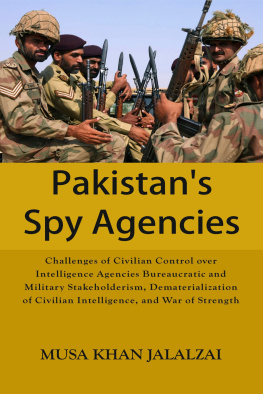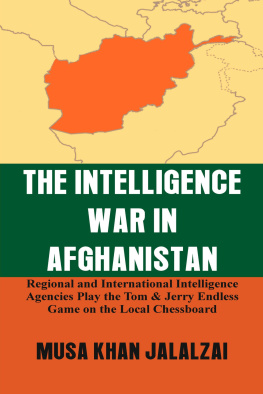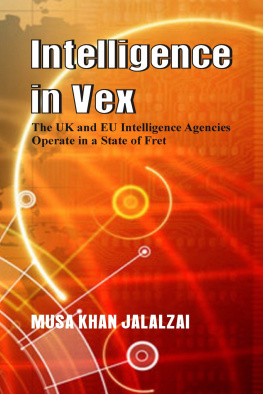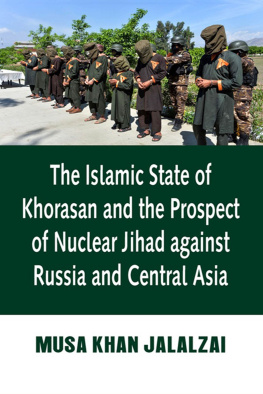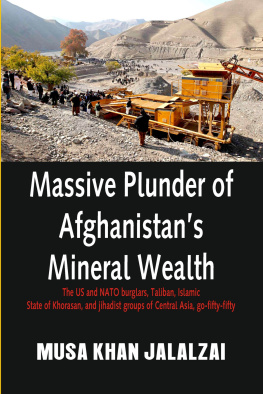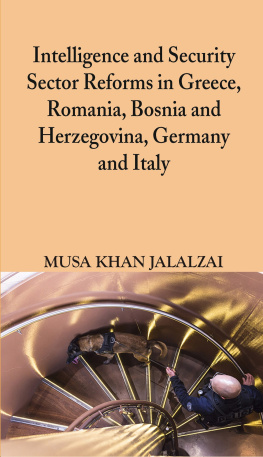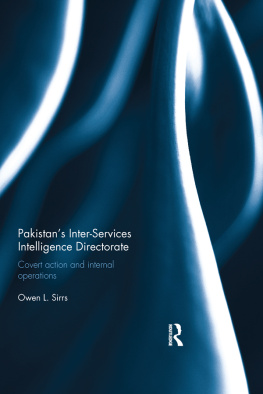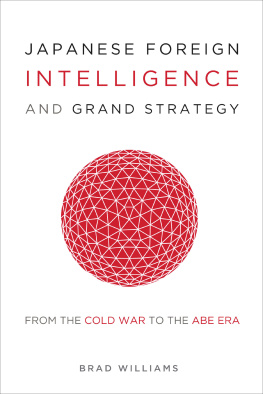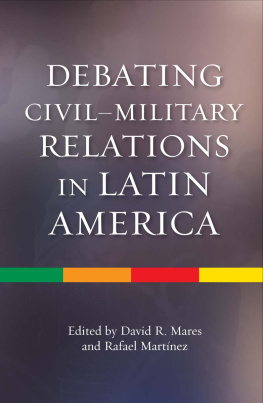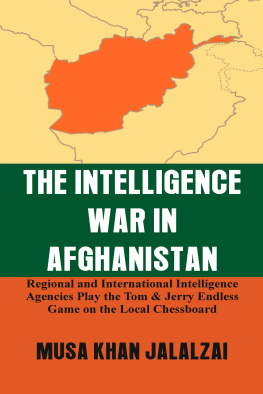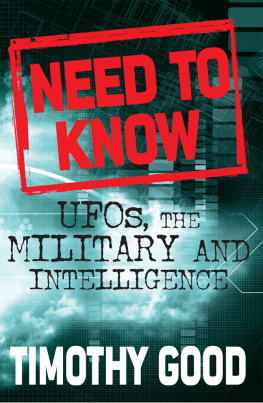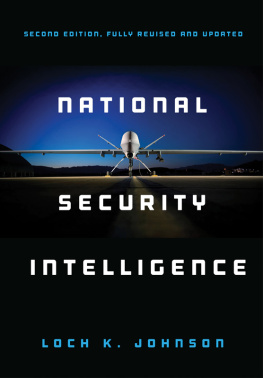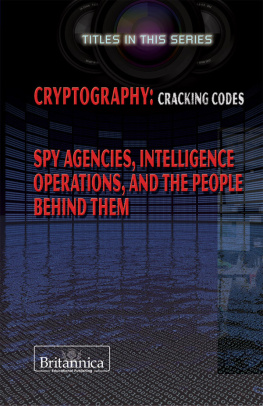Published by
Vij Books India Pvt Ltd
(Publishers, Distributors & Importers)
2/19, Ansari Road
Delhi 110 002
Phones: 91-11-43596460, 91-11-47340674
Mobile: 98110 94883
e-mail:
www.vijbooks.com
Copyright 2020, Author
ISBN: 978-93-89620-47-4 (Hardback)
ISBN: 978-93-89620-49-8 (ebook)
All rights reserved.
No part of this book may be reproduced, stored in a retrieval system,
transmitted or utilised in any form or by any means, electronic,
mechanical, photocopying, recording or otherwise, without the prior
permission of the copyright owner. Application for such permission
should be addressed to the publisher.
..The BBC journalist M Ilyas Khan confirmed atrocities of Pakistan army in his BBC News report: In May 2016, for example, an attack on a military post in the Teti Madakhel area of North Waziristan triggered a manhunt by troops who rounded up the entire population of a village. An eyewitness who watched the operation from the wheat field nearby and whose brother was among those detained told the BBC that the soldiers beat everyone with batons and threw mud in childrens mouths when they cried. A pregnant woman was one of two people who died during torture, her son said in video testimony. At least one man remains missing. (BBC News, Dera Ismail Khan, 02 June 2019).
Pakistan today presents an excruciating picture of ethnic faultlines. The complex reciprocation among the internal and external forces, fashioning Pakistan today, call on to an in-depth evaluation of their influence on the countrys future-in the context of both continued state stability and Pakistans potential to jump-start broader security priorities in the region. Pakistani politicians, economists, and research scholars have written numerous research papers to find out an immediate panacea to its fractured physique, but policy makers and military junta have also been mixed up in a complex web of debt trap, ethnic faultlines, and corruption, to that end, they have been unable to smash the strong web of challenges encompassing their way to aggrandisement.
Pakistani analyst and writer, Dr. Muhammad Taqi has added a murky picture to the countrys deteriorating political and economic crisis: Pakistans economy is in a virtual free-fall and the blame for it rests squarely with the army, which had upset the applecart of democracy by engineering former Prime Minister Nawaz Sharif s ouster in 2017. Now, as the country is staggering on the brink, Military establishment manifested no interest in the deteriorating health of the Islamic Republic as it has already established its own military republic of 10 million retired and working military friends that exports fear and consternation to India and Afghanistan. The military state of Pakistan is intelligent and competent in managing its own economy, industry, health sector, education, food, medical industry, banking system, property development, and poverty. Moreover, a little while back, Lt. Gen. P.R Shankar, (Retd) (Bharat Shakti, June 22, 2019) painted a consternating picture of the Islamic Republic of Pakistans relationship with neighbouring states:
Pakistan has poor relations along all its borders. Indo-Pak relations are poor. Well known Pakistani meddling for strategic space is fundamental to the collapse of Afghanistan. Good Taliban, Bad Taliban, Afghan Taliban, Pakistani Taliban, State actors, Non-State actors (sponsored and non-sponsored), and Pashtun movements along and Durand Line will keep Pakistan on its toes and take a toll on its purse. A Shia Iran and a Sunni Pakistan will always be uneasy neighbours. Stoking transnational Baluch, Pashtun and Kashmiri population will ensure permanent border instability. Pakistans strategic attraction to Afghanistan is like a drug addict to poppy. Hostile and unsettled borders extract long term costs and promote Pakistani State failure.
The imbalance of Pakistans civil-military relations since the abolishing of Nawaz Sharif s government caused increasingly misperceptions about the changing role of military in politics, while Pakistans intelligence agencies have been regularly communicating with political parties to improve the image of the army after it used unrestrained power in FATA and Baluchistan operations, in which more than one million Pashtuns and Balochs were forced to leave their houses. The current democratic administration under Prime Minister Imran Khan needs to address these systemic challenges, though the need for institutional reform and building a process-driven approach. The eruption of violence in Baluchistan and the excessive use of force by the army demonstrate this lack of strategy.
The country maintains 32 secret agencies working under different democratic, political and military stakeholders who used them for their own interests. The rapid aggrandisement and evolution of the strategic, political, and economic environment in Pakistan since 2001, has furthered the quest for information on security issues and operational mechanism of intelligence agencies. In the wake of recent series of sectarian and terrorist attacks on civilian and military installations, and growing security concerns has been a wave of new security regulation and unlimited power aimed at expanding intelligence powers across the country.
Established in 1948, the ISI was tasked with acquiring intelligence of strategic interests and assessing the intensity of foreign threats, but political and military stakeholders used the agency adversely and painted a consternating picture of its working environment. The best intelligence agency with its excellent and professional security approach is now dancing to different tangos. The civilian intelligence agency-Intelligence Bureau (IB) has been gradually neglected due to the consecutive military rule and weak democratic governments. The Intelligence Bureau (IB) was established by the British Army Major General Sir. Charles MacGregor, who at that time was Quartermaster General and head of the Intelligence Department for the British Indian Army at Shimla in 1885. Appointment for IBs Director-General is made by the Prime Minister and confirmed by the President. The IB, which was patterned after the IB of British India, used to be largely a police organisation, but the post of Director-General (DG), IB, is no longer tenable only by police officers as it was in the past. Serving and retired military officers are being appointed in increasing numbers to senior posts in the IB, including to the post of DG. In 1990s, the IB remained actively involved to curb sectarianism and the fundamentalism in the country. Many of its operations were directed towards infiltration, conducting espionage, counterespionage, and providing key information on terrorist organizations.
The successive governments have been using the agency against opponents, writers, and journalists in Pakistan since 1970s, while former Prime Ministers Benazir Bhutto and Nawaz Sharif painted a controversial picture of its operational mechanism. I am not going to highlight the whole historical journey of the agency but wish to describe its modernistic way of operation under democratic governments. In 2017, a list of over 37 lawmakers suspected of having links with banned terrorist and sectarian outfits was openly circulated by the agency to win the favour of Prime Minister Nawaz Sharif. The list first came to light when a private television channel (ARY News) aired a report claiming that former Prime Minister Nawaz Sharif had directed the IB on July 10 to keep watch on the listed legislators, mostly belonging to the PML-N. On 26 September 2017, DG IB Aftab Sultan came under scathing criticism from PTI Chief Imran Khan for visiting London to further put heads together with former PM Nawaz Sharif. In October 2017, the 37 parliamentarians staged a walkout from National Assembly after the Intelligence Bureau (IB) report accused them of having links with terrorist organizations. While yelling in parliament, Federal Minister Riaz Peerzada said that the government should launch an investigation into the matter and unveil the name of the person who prepared the report. Thus, the IB became a controversial agency, and several whistleblowers and double-crossers asserted one.

